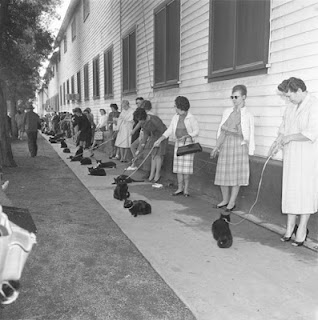Telekable and filtering: will the ECJ clear things up?
 |
| Henry pictured whilst watching his favourite rom-com in streaming |
Shortly after a significant win of US major broadcasters in proceedings brought before the US Court of Appeals for the Second Circuit against Seatlle-based ivi (you can read today's report by Ben on The 1709 Blog), now it's up to the Court of Justice of the European Union (ECJ) to clarify internet streaming of protected contents from a EU law perspective.
As reported on UK IPO's website, a new case has been referred to the CJEU by the Oberster Gerichtshof (Austria). This is Case C-314/12 UPC Telekable Wien. Comments can be submitted by 7 September, whilst the deadline for observations is 10 October.
The dispute pending before the Austrian court concerns the availability of protected films via the internet. The plaintiff, who holds the rights in various films, has applied for an interim injunction aimed at prohibiting the defendant (an Austrian internet access provider) from providing access to a website (kino.to) where such films are made illicitly available.
 |
| Vintage casting call for black cats (Los Angeles Times, 1961) |
1. Is Article 8(3) of the Directive to be interpreted as meaning that a person who makes protected subject matter available on the internet without the right holder's consent is using the services of the access providers of persons seeking access to that protected subject matter?
2. If the answer to the first question is in the negative, are reproduction for private use and transient and incident reproduction permissible only if the original reproduction was lawfully reproduced, distributed or made available to the public?
3. If the answer to the first and second question is in the affirmative, and an injunction is therefore to be issued against the user's access provider in accordance with Article 8(3) of the Directive, is this compatible with Union law, in particular with the necessary balance between the parties' fundamental rights?
4. If the answer to the third question is in the negative, is it compatible with Union law to require an access provider to take specific measures to make it more difficult for its customers to access a website containing material made available unlawfully if those measures require not considerable costs and can easily be circumvented without any special technical knowledge?
This Kat thinks that this reference is a pretty (interesting) – and possibly controversial - one, especially if one considers the last question. This is because recent ECJ rulings in Scarlet and Netlog did not really clarify whether and to what extent the installation of filtering systems would be contrary to EU law. Indeed, the answers given by the Court in both cases were heavily fact-dependent and, therefore, not very helpful. The ECJ held that what EU law prohibits is the issuing of an injunction against an ISP which requires it to install a system for filtering:
(1) all electronic communications passing via its services, in particular those involving the use of peer-to-peer software;
(2) which applies indiscriminately to all its customers;
(3) as a preventive measure;
(4) exclusively at its expense; and
(5) for an unlimited period.
From a literal interpretation of the Scarlet and Netlog rulings, it seems that those above are to be intended as cumulative conditions.
So, it will be very interesting to see what the CJEU says in relation to the new set of questions referred by the Austrian court.
Whilst waiting for ECJ developments, could any Austrian readers provide more details about the factual background?

